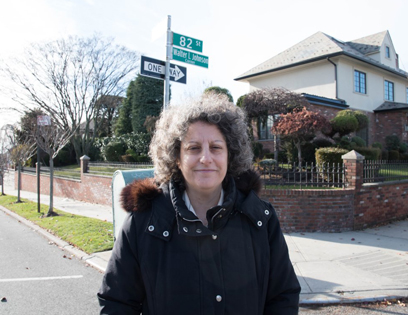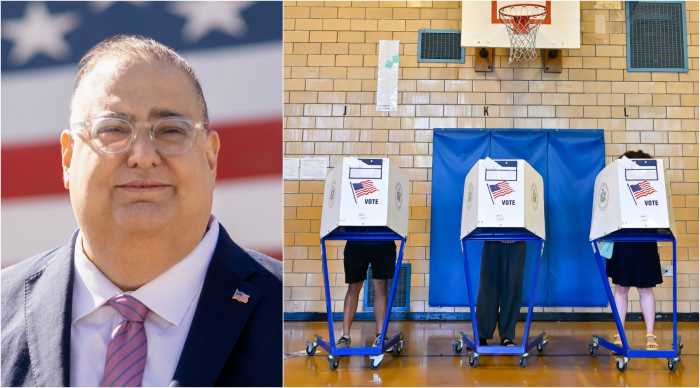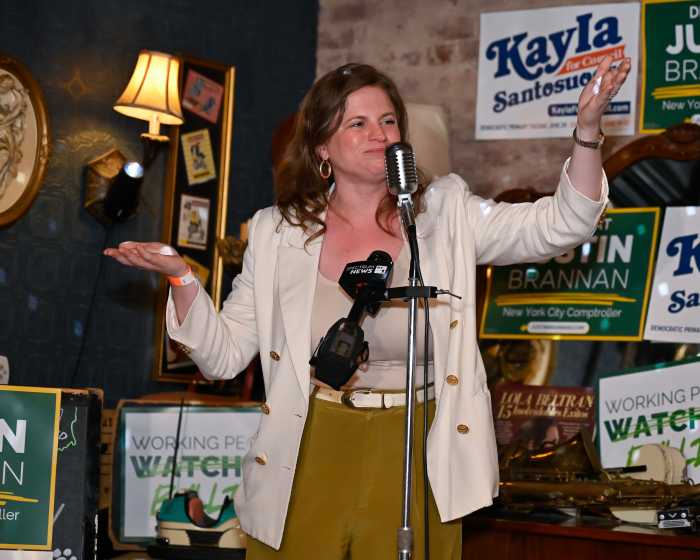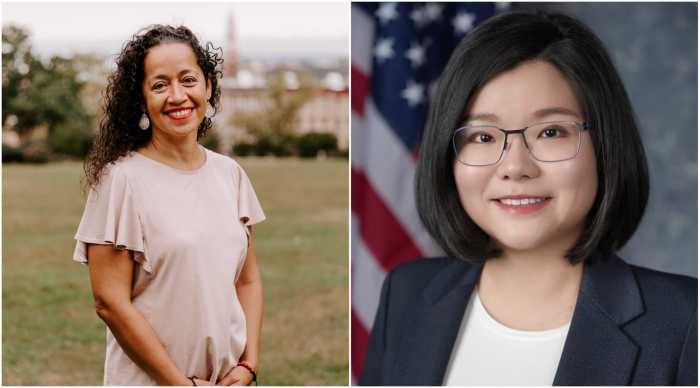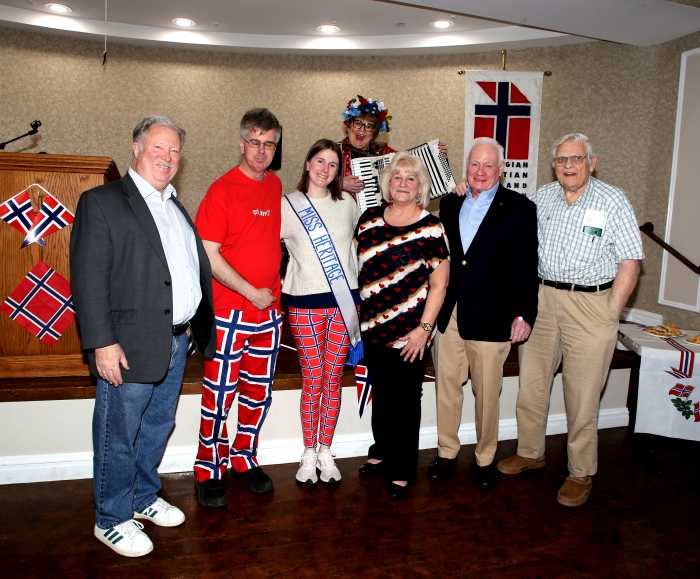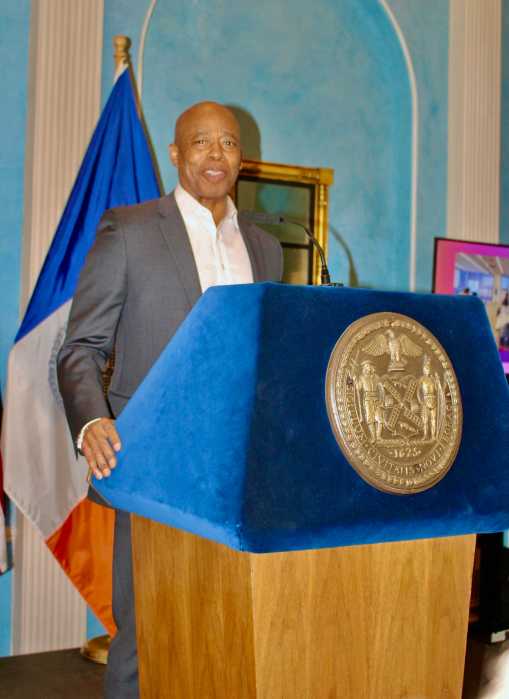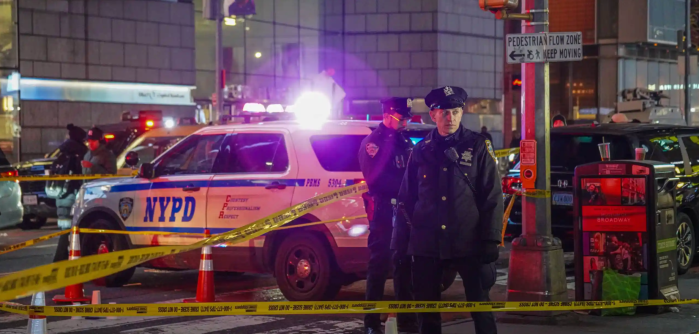A neighborhood watch initiative in Dyker Heights has some locals worried that it could further divide the community after an especially divisive Council election, but one of the organizers contends that it’s really meant to bring the community together.
“It’s really about communicating with each other, stepping up to the plate as a community, as a neighborhood, and playing an active role in the safety of the community,” said Fran Vella-Marrone, the president of the Dyker Heights Civic Association, the organization that announced the creation of the crime watch on Nov. 14.
The email chain-based watch will focus on all of the 11228 zip code and a portion of the nearby 11219 zip code, according to Vella-Marrone, making the boundaries of the watch from approximately from the Dyker Heights side of Seventh Avenue to 15th Avenue, from 62nd to 86th streets. Vella-Marrone said the association initially mailed out a letter informing residents of the program in the area between 10th and 13th avenues from 75th to 86th streets because that area is the geographic center of Dyker Heights and because the association was working with a limited budget.
When locals want to report minor crimes, suspicious activity, or quality-of-life issues — such as graffiti, speeding cars, vandalism, or people loitering — they will email the designated crime watch address, which will then forward the complaints to everyone else on the chain. Vella-Marrone added that the messages could possibly include surveillance videos from the homes of locals who want to share them.
She said the neighborhood watch will allow the community to point out patterns of suspicious activity to police.
“We’ll be able to show them patterns of things going on, and maybe things they’re not aware of,” she said.
Another objective of the initiative, according to Vella-Marrone, is to put potential malefactors on notice that locals are on the lookout for trouble.
“If people come to our community and want to do harm to our community, and they know that there are all these eyes watching them, it could be a deterrent,” Vella-Marrone said.
But police statistics show that there is little crime overall in the 68th Precinct, which includes Dyker Heights and Bay Ridge. There were only three robberies and two burglaries so far this year and zero felony assaults — down from six felony assaults last year. And overall crime in the precinct has decreased nearly seven percent from last year and 15 percent from 2015.
But Vella-Marrone said that the email chain will be a way to circulate concerns among locals and identify patterns without burdening 68th Precinct officers.
“They’re stretched very thin,” Vella-Marrone said, adding that the moderators will not report all complaints to the precinct, but rather when there are similar complaints that occur over time.
But one longtime Dyker Heights resident said that although he understands the concerns over quality-of-life complaints, he also worries that the watch program may unfairly target the neighborhood’s growing Arab, Asian, and Hispanic populations.
“My fear is that it will be used for people to start writing prejudiced things that will make one incident into a community concern,” said Rev. Khader El-Yateem, a Lutheran pastor who lives in the area the watch will focus on. “We want people to be engaged, but not use it as a tool so that other people feel threatened because of their skin color.”
El-Yateem, who ran for the open Council seat and came in second in the Democratic primary, saw first-hand during his campaign the racist and xenophobic attitudes he fears could infect the watch program.
But Vella-Marrone rejected the idea that the watch would be a platform for racism, adding that it would be more controlled than the Facebook groups where racist rhetoric often flourishes.
“We’re not looking to target anybody,” she said. “That’s part of the reason why we don’t want a Facebook page, where people are just wildly making comments and statements about people.”
Vella-Marrone said that race would not be used as an identifying factor in the email chain.
El-Yateem said that he would sign up for the email chain to monitor how locals use it, but that he would still call 911 or 311 if he sees something that he believes merits attention.
“It’s important for us to be conscious of this program and how it’s displaying prejudice,” he said.
Another local who has lived in the neighborhood for 34 years said she will consider signing up for the list because she doesn’t always want to bother the overworked local police force, adding that the program could be particularly useful during the sometimes tumultuous season of the Dyker Lights displays, when locals say visitors often run amok.
“These police are being inundated with so much, I don’t want to call for anything,” said Sueann DiPrima, who lives in the area where the watch will be active. “I will take part in anything that’s going to protect the neighborhood.”
And a born-and-raised Dyker resident said that she didn’t know if she would sign up for the list because she wasn’t convinced the program would make a difference, but said that the community should give it a shot.
“It kind of sounds like everyone’s complaining and not really taking action — so I really don’t know,” said Mary Olivia. “I’d rather look at taking constructive steps towards making our community better, but I feel like we should give it a chance.”
Vella-Marrone said the neighborhood-watch list would launch in January, and that there are about 130 locals signed up so far. She said she and the others involved are open to hearing constructive criticism once the virtual watch starts.
“This program is going to evolve as we proceed,” said Vella-Marrone. “If anybody has concerns or recommendations, of course we’re going to listen to them and improve things as we go along.”


